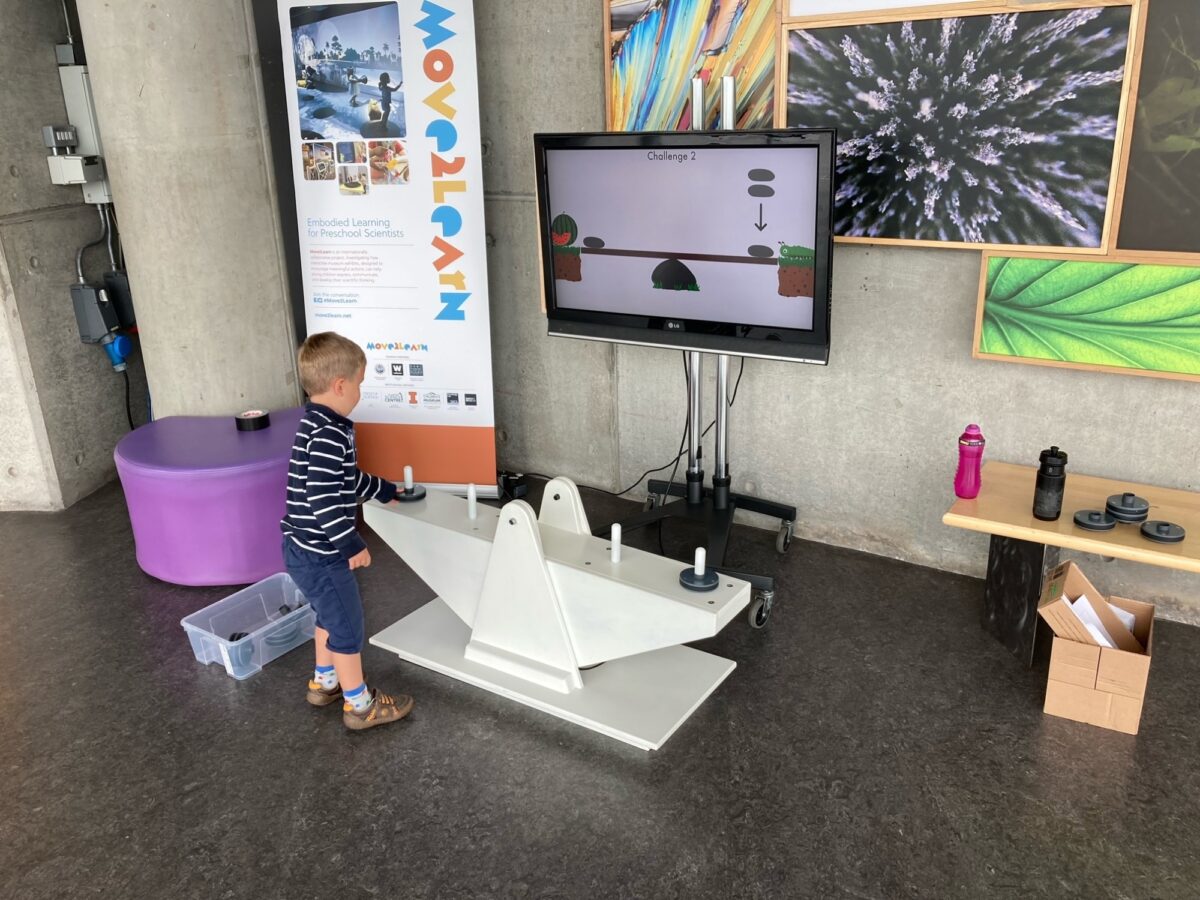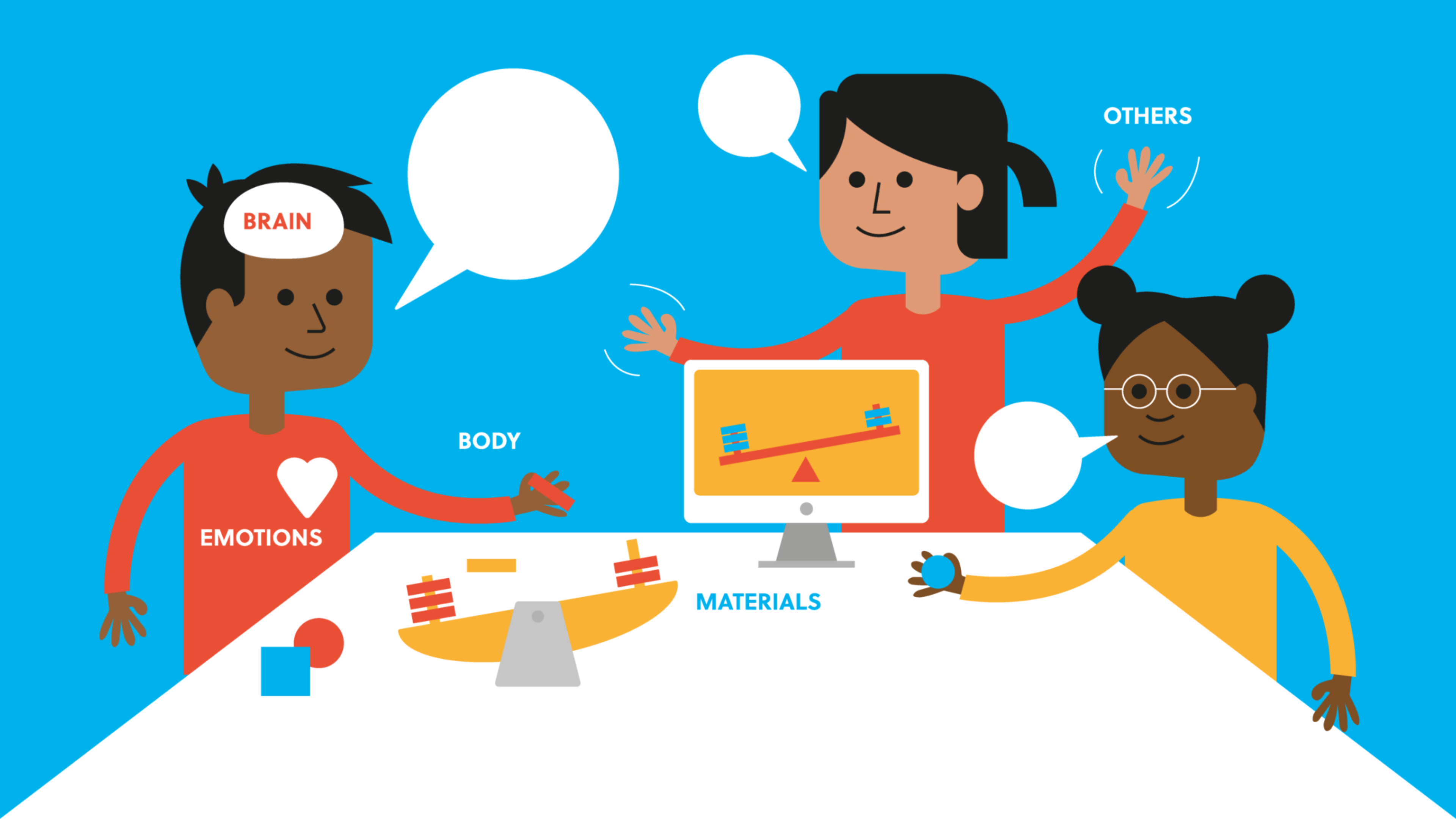
A collaboration that boosts how children learn science using body gestures and movements has won the Making a Social Difference prize at the Scottish Knowledge Exchange Awards 2022.
Dr Andrew Manches, Co-Director of the Digital Education Research Centre at the University of Edinburgh’s Moray House School of Education and Sport, worked with the Glasgow Science Centre (GSC) and SSERC, which promotes STEM education, to improve science education at museums, science centres and schools for children aged three to eight, particularly those who have few science learning opportunities.
Improved exhibits and facilitation
The Move2learn collaboration has led to improved design of exhibits and better facilitation of learning. It has also resulted in more than 1,200 engagements with children, a novel prototype exhibit, a licensed game, the Tam Dalyell prize for Science Engagement and an extension into special educational needs.
The game, called STEM Charades, was highly praised by teachers and children during the project and has attracted commercial interest from retailers.
EI support
Edinburgh Innovations has supported the team, providing advice on the commercialisation of their resources to scale impact.
The Making a Social Difference award was presented at the seventh annual Scottish Knowledge Exchange Awards, organised by Interface, which connects businesses from all sectors to Scotland’s universities, research institutes and colleges. The awards were introduced by Ivan McKee, the Scottish Government’s Minister for Business, Trade, Tourism and Enterprise.
Dr Manches said:
Winning the Making a Social Difference award is an amazing way to celebrate and thank our colleagues at Glasgow Science Centre and SSERC for the time and passion they have continued to give, which has enabled us to really connect learning research to everyday practice.
We have already reached many children through our partnership, directly and indirectly, and are very excited currently to be building upon and extending this work to explore the value of gesture in the classroom and its links to sign language to improve STEM education for all children.
Embodied learning
Dr Manches researches “embodied learning” – learning that includes hand gestures and body actions – and how these physical experiences underpin STEM thinking and conceptual understanding, enhancing the learning experience for children.
His insights helped design the activities and resources developed during the collaboration and informed the training resources for facilitators at museums and science centres.
Dr Manches also helped the team with multi-data capturing techniques, video analysis, storage of sensitive data and educational resource design.
The project was designed to address a growing need to demonstrate to funders and visitors the learning value of exhibits beyond their entertainment value.

Staff training
One of the most impactful outcomes has been staff training in how to encourage educators’ and children’s gesture to support inclusive STEM learning.
The University and GSC have shared the findings with more than 200 practitioners at multiple practitioner conferences and through multiple training sessions for staff throughout GSC.
SSERC, Scotland’s largest STEM training organisation, became involved after the initial keen interest from teachers. SSERC delivered workshops with 10 STEM lead teachers and co-developed a day-long teacher training course which has been delivered for West Lothian and North Lanarkshire and is currently being scaled for delivery across councils across Scotland, through live workshops and a MOOC.
More information on the Move2learn project